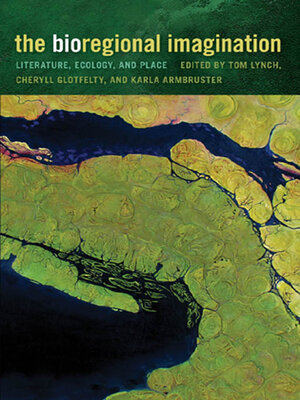
Sign up to save your library
With an OverDrive account, you can save your favorite libraries for at-a-glance information about availability. Find out more about OverDrive accounts.
Find this title in Libby, the library reading app by OverDrive.



Search for a digital library with this title
Title found at these libraries:
| Library Name | Distance |
|---|---|
| Loading... |
Bioregionalism is an innovative way of thinking about place and planet from an ecological perspective. Although bioregional ideas occur regularly in ecocritical writing, until now no systematic effort has been made to outline the principles of bioregional literary criticism and to use it as a way to read, write, understand, and teach literature.
The twenty-four original essays here are written by an outstanding selection of international scholars. The range of bioregions covered is global and includes such diverse places as British Columbia's Meldrum Creek and Italy's Po River Valley, the Arctic and the Outback. There are even forays into cyberspace and outer space. In their comprehensive introduction, the editors map the terrain of the bioregional movement, including its history and potential to inspire and invigorate place-based and environmental literary criticism.
Responding to bioregional tenets, this volume is divided into four sections. The essays in the "Reinhabiting" section narrate experiments in living-in-place and restoring damaged environments. The "Rereading" essays practice bioregional literary criticism, both by examining texts with strong ties to bioregional paradigms and by opening other, less-obvious texts to bioregional analysis. In "Reimagining," the essays push bioregionalism to evolve—by expanding its corpus of texts, coupling its perspectives with other approaches, or challenging its core constructs. Essays in the "Renewal" section address bioregional pedagogy, beginning with local habitat studies and concluding with musings about the Internet.
In response to the environmental crisis, we must reimagine our relationship to the places we inhabit. This volume shows how literature and literary studies are fundamental tools to such a reimagining.






